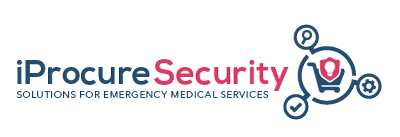
Electronic health card – now testing
For years, the health care system has been developing in such a way that data is increasingly stored electronically and can also be accessed centrally. In this manner, an electronic health record (eGA), similar to the electronic medical record of a hospital, is planned.
The electronic health record would be a database in which the anamnesis, treatment data, medication, allergies and other health data of those with statutory health insurance are to be stored nationwide in a uniform manner across sectors and cases.
Named possible advantages:
- Every doctor has quick access to all important data.
- In an emergency, doctors in the hospital can immediately see which previous illnesses a patient has and whether he or she cannot tolerate certain drugs.
- Patients can store and manage medical data independently of the documentation obligations of doctors and dentists to improve their information situation in the healthcare system.
- For insurance companies, efficiency advantages arise when referral slips, prescriptions and doctors’ letters are electronically issued to the patient in the eGA.
- Using statistical procedures (Big Data), accumulations of disease patterns can be determined from anonymized patient data and thus, if necessary, precautions can be taken.
Named possible disadvantages
- Many doctors reject the electronic medical record. They believe that handwritten records are more detailed and contain more relevant details.
- Because of the personal style, relevant information could be extracted more quickly from handwritten notes.
- The security procedures drawn up for the eGA are extensive and reduce the number of potential providers. The German Medical Association (Bundesärztekammer, BÄK) had already demanded in 2009 that the data protection provisions of the eGK is applied to the eGA as well.
- Since the patient has the power to decide which data are stored and which are not, the health data in the ePA are of limited value due to the only partially contained information. The doctors or dentists accessing it cannot rely on its completeness and derive diagnostic or therapeutic consequences from it alone.
- Input errors, misdiagnosis or manipulated input can lead to wrong medical conclusions.
- Future covetousness of the data by politicians, health insurance companies, insurers or employers cannot be ruled out.
- Data protection, also in the sense of medical confidentiality, will have to be regularly adapted to the progress of information technology, otherwise, it will not last forever.
In German-speaking countries, the eGA is a central pillar of the e-health concepts pursued by industry and health authorities. It is a variant of the electronic file. Health data protection is of particular importance in this context.
The eGK field test of voluntary applications can finally start in Germany: Two applications are being tested in a small field test in Münsterland: Doctors are to create an emergency data record that can be read out by emergency doctors or the emergency room in the hospital. In addition, they have to upload an electronic medication plan that can be used by pharmacies (and other doctors).
In this manner, the emergency data on the health card and an up-to-date medication plan will be valuable for medical orientation in many situations in emergency departments and initial admissions.

